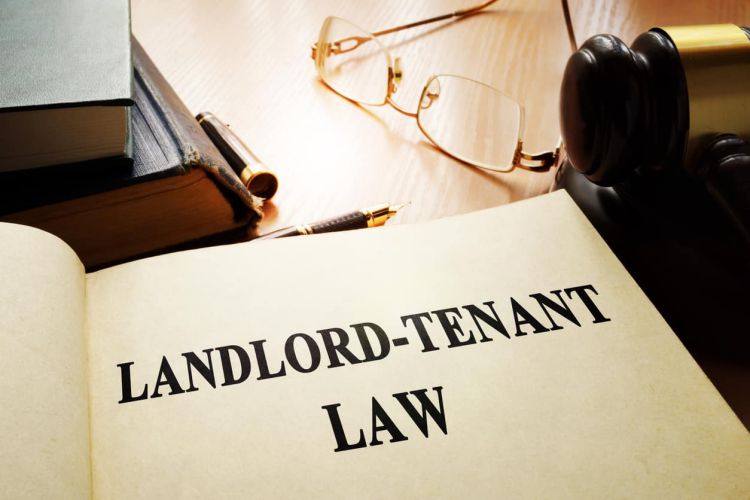Renting a home should feel secure, not stressful. But when your landlord becomes unresponsive, unreasonable, or even aggressive, it can leave you feeling stuck and unsure of your rights. Whether it’s ignored maintenance requests, surprise rent hikes, or threats of eviction, knowing what you can legally do is the first step toward regaining control of the situation.
 In fact, many renters don’t realise that they have more protections than they think. A trusted solicitor Burwood tenants often turn to says most disputes can be resolved faster and with less stress when you understand your legal standing from the start.
In fact, many renters don’t realise that they have more protections than they think. A trusted solicitor Burwood tenants often turn to says most disputes can be resolved faster and with less stress when you understand your legal standing from the start.
Here’s what you need to know — and what you can do — if you’re dealing with a difficult landlord.
Step 1: Know Your Rights as a Tenant
Every state and territory in Australia has residential tenancy laws that outline both landlord and tenant responsibilities. These laws cover things like:
- How much notice your landlord must give before entering the property
- Rules around rent increases and lease renewals
- The process for ending a tenancy
- Requirements for repairs and maintenance
If you haven’t already, check your state or territory’s tenancy authority website for specific information. For NSW, that’s Fair Trading NSW.
It’s important to understand that landlords can’t just make up their own rules — they’re bound by legislation just like you are.
Step 2: Keep Everything in Writing
When dealing with a difficult landlord, always aim to keep communication polite, professional, and in writing.
Text messages, emails, and dated letters are helpful in case you need to prove what was said (and when). If a repair has gone ignored for weeks, for instance, being able to show that you reported it multiple times can make a big difference if things escalate to a formal dispute.
If your landlord insists on calling you instead of writing, follow up afterward with a short email summarising the conversation.
Example:
“Thanks for the phone call today regarding the leaking tap. As discussed, I’ll wait to hear back about when the plumber can attend.”
These small steps can help protect you if legal advice becomes necessary.
Step 3: Request Repairs Formally
Under tenancy laws, landlords are required to maintain the property in a reasonable state of repair. If something breaks — especially something essential like hot water, plumbing, or electricity — your landlord is legally obligated to fix it.
Here’s how to handle it:
- Report the issue in writing
- Be specific — Include dates, photos, and how it’s impacting your living conditions
- Give them a reasonable deadline (e.g., 7–14 days for non-urgent repairs)
If the issue is urgent (like a burst pipe or gas leak), most states require landlords to respond within 24–48 hours.
Step 4: Escalate if You’re Being Ignored
If your landlord continues to ignore serious problems or you believe they are breaching your lease, you have options:
- Contact your local tenancy tribunal or advisory service — In NSW, this is NCAT (NSW Civil and Administrative Tribunal)
- Lodge a formal complaint or application — You may be entitled to a rent reduction, reimbursement, or even compensation
- Seek legal advice — Especially if the dispute involves threats of eviction or large sums of money
Many community legal centres offer free or low-cost advice. And if the situation is particularly complex, hiring a solicitor may be worthwhile to make sure your rights are fully protected.
Step 5: Stay Calm — But Stand Firm
It’s easy to get emotional when your home is at stake. But staying calm and focused (even when your landlord isn’t) gives you a better chance of resolving things on your terms.
Here are a few practical tips:
- Don’t engage in arguments
- Don’t withhold rent — even if the landlord isn’t upholding their end
- Don’t make threats — keep the communication respectful
- Do document everything
- Do keep a copy of your lease handy for reference
Bonus: When It’s Time to Move On
Sometimes, despite your best efforts, the relationship with your landlord is beyond repair. If that’s the case, make sure you:
- Give the correct notice in writing
- Take detailed photos before leaving
- Request a final inspection and your bond refund
And remember: a difficult landlord doesn’t mean every rental will be stressful. Knowing your rights now helps you feel more confident next time, whether you’re staying or moving on.
Dealing with a difficult landlord is never fun — but you’re not powerless. When you understand your rights, stay organised, and know when to ask for legal support, you put yourself in a much stronger position. You deserve a rental experience that feels safe and fair — and taking the right steps now can help you get there.


